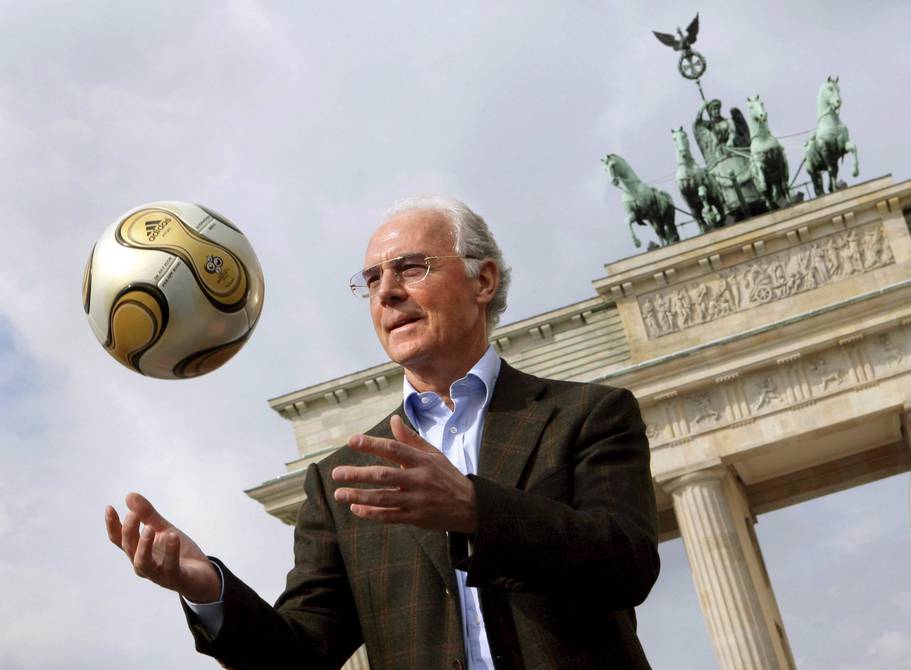German legend Franz Beckenbauer, world soccer champion as a player and technical director with his country’s national team, died at the age of 78, his family reported in a statement on Monday.
“It is with deep sadness that we announce that my husband and father, Franz Beckenbauer, passed away peacefully in his sleep yesterday, Sunday, surrounded by his family. We ask that you be able to cry in silence and refrain from asking questions,” was the message issued by the family.
The “Kaiser” was going through a “significant” deterioration in health, as recently reflected in the media in his country. His departure occurs 48 hours after the death of another global football glory: Brazilian Mario Zagallo, the only four-time world champion in history.
In the pantheon of football greats, Beckenbauer emerges as one of the most transcendent figures of the 20th Century, with a legacy that spans decades of contributions both as an elite footballer and as a master strategist.
Born on September 11, 1945 in Munich, Beckenbauer forged his destiny in the beautiful game from an early age. His rise began at Bayern Munich, where, in the mid-1960s, he established himself as one of the most prominent defenders of his generation.
For tactical vision, elegance in the game and ability to lead from the baseline, Beckenbauer earned the nickname “Kaiser” (Emperor), a reference that Daniel Passarella acquired years later in Argentine soccer. In his time with Bayern, he won three Bundesliga titles and three consecutive European Cups (1974, 1975 and 1976), leaving an indelible mark on the history of the German football giant.
But the moment of greatest glory in his playing career came at the 1974 FIFA World Cup, when he was captain of the German team. In his own country, Beckenbauer led Die Mannschaft to victory, second in history after that achieved in Switzerland ’54.
In the final held at the Olympic Stadium in Munich, Germany beat Johan Cruyff’s “Clockwork Orange” and crowned a title in which Beckenbauer had a notable influence on the field, both in his role as a solid defender and as the undisputed leader of a team that also included figures of the stature of Gerd Müller.
Beckenbauer’s versatility allowed him to play in different positions on the field, until he emerged as a classic number 10. In 1977, after a long career at Bayern, he made the leap to American soccer to join the New York Cosmos of the North American Soccer League (NASL).
His arrival not only marked a milestone for soccer in the United States, but also cemented his status as a global ambassador for the sport.
Throughout his career, he accumulated individual awards that underline his excellence in sport, including the Ballon d’Or (1972 and 1976) and the title of Best German Footballer of the Year four times (1966, 1968, 1974 and 1976).
In ’66 he was also chosen as the best footballer at the World Cup in England and was part of the ideal XI as well as in Mexico ’70 and Germany ’74.
After his retirement as a player in the United States, after a spell in Hamburg, Beckenbauer developed a successful career as a coach, always supported by his innate quality as a leader. He started with no experience in the national team and took it to the final of the Mexico ’86 World Cup, which they lost to the Argentina of Diego Maradona and Carlos Bilardo.
That merit kept him in office until the next event in Italia ’90, in which he gained revenge against Argentina, providing the third world star for German football.
He also managed Olympique de Marseille and naturally Bayern Munich, with whom he won the 1994 Bundesliga and the UEFA Cup two years later. His ability to manage teams and adapt to tactical circumstances earned him recognition among the elite of European football.
In addition to his successes on the bench, Beckenbauer played a leading role in organizing renowned football events. He was named honorary president of Bayern and head of the Organizing Committee of the 2006 FIFA World Cup in Germany.
On the day of his passing, the football community pays tribute to a giant of world football, who left an indelible mark on the history of world football and whose legacy will endure as an inspiration for future generations. Telam
